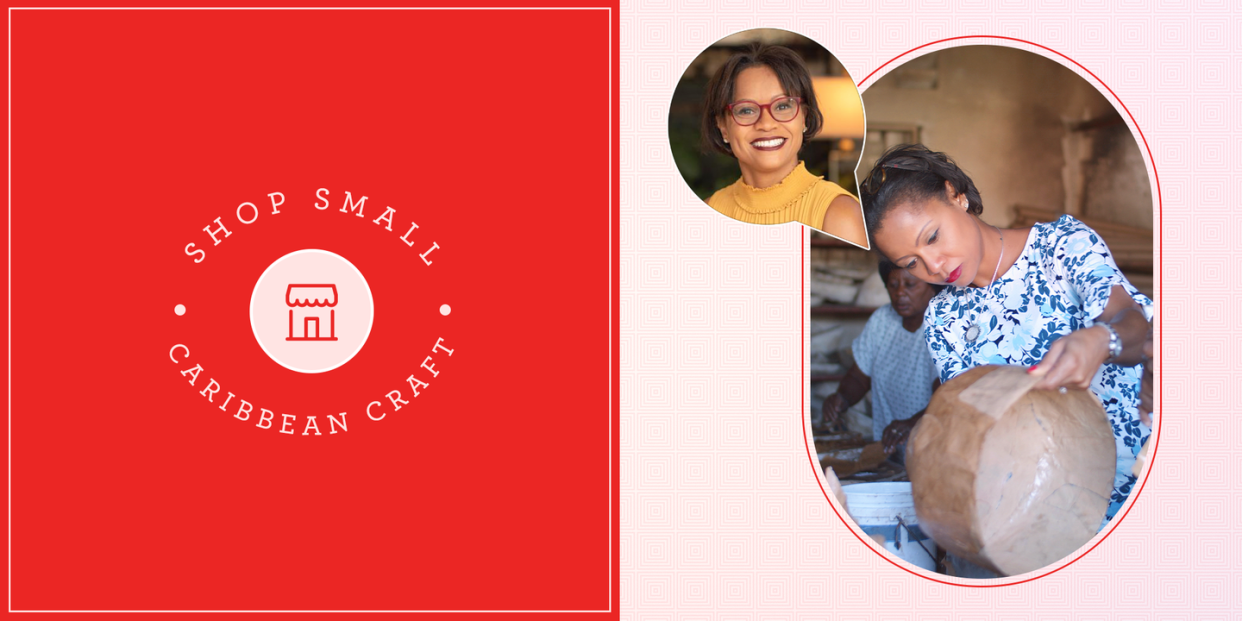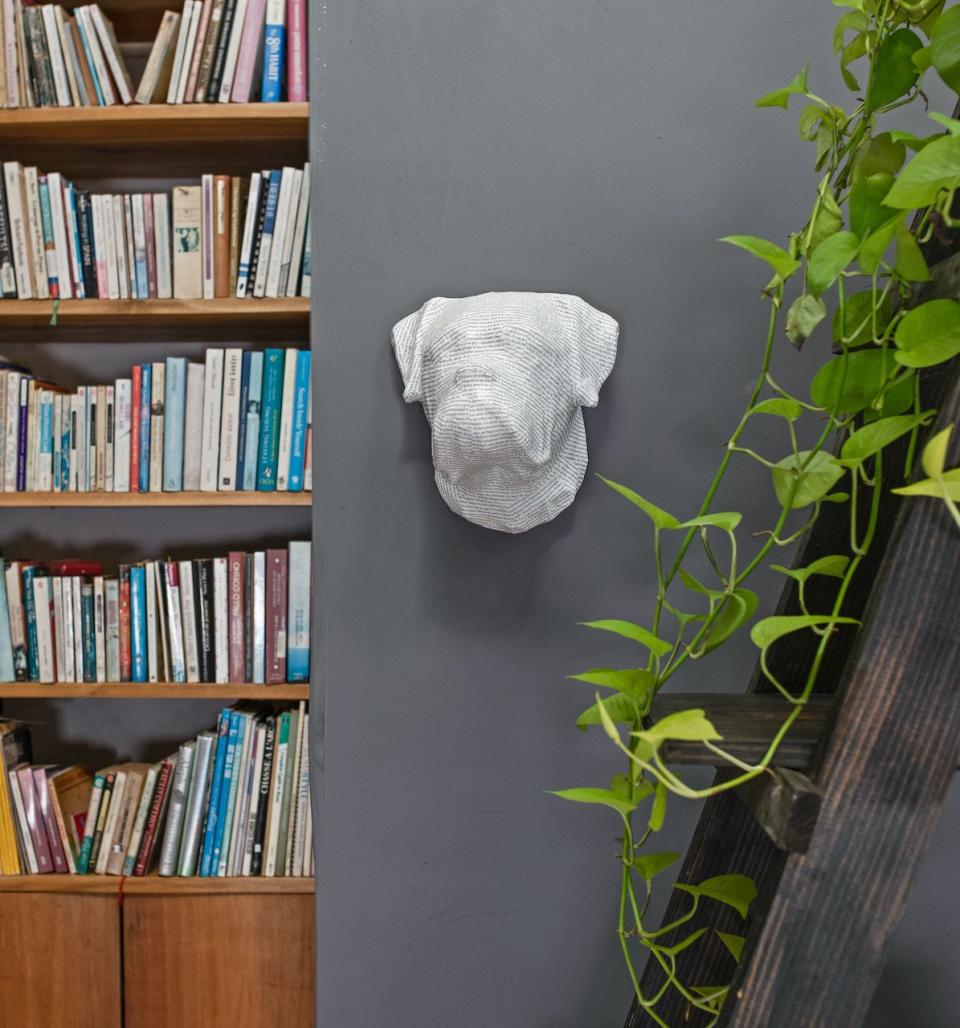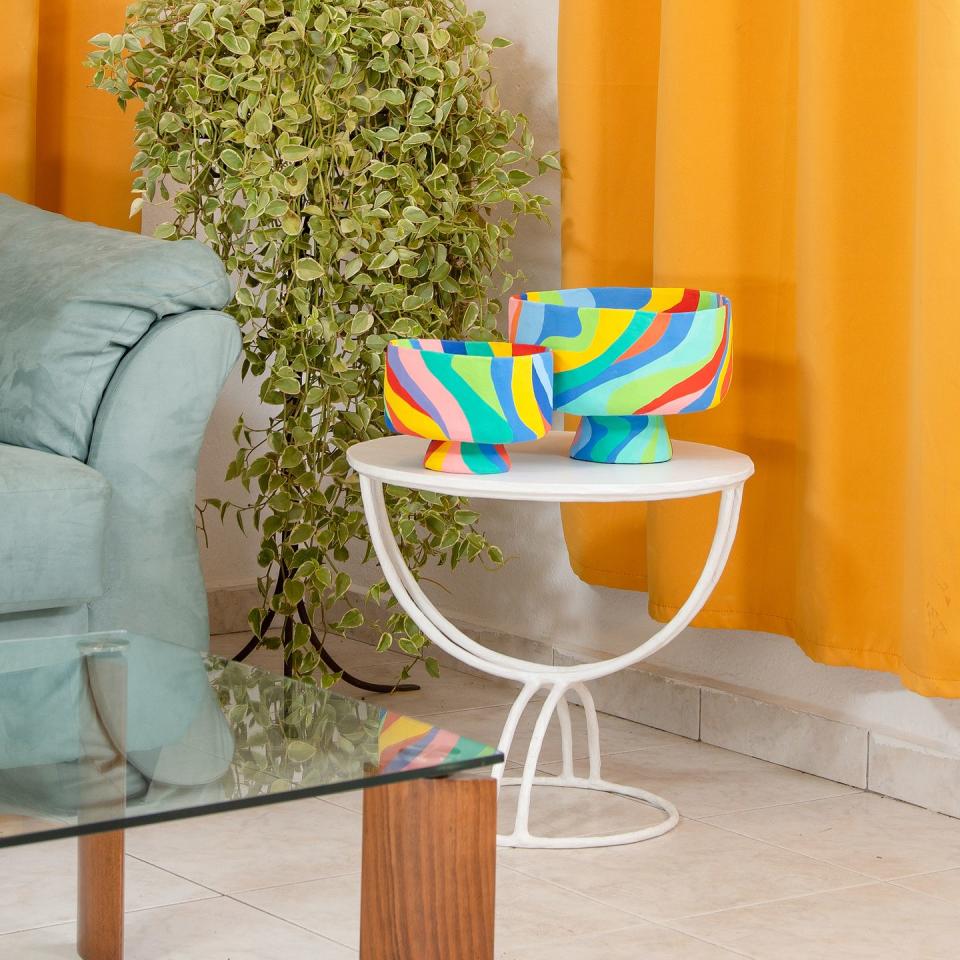Meet the Talented Haitian Artisan Who Is Determined to Empower Her Country

Shop Small is a bi-weekly series highlighting small business owners from diverse backgrounds. This series aims to go deeper than your typical product roundup, diving into the inspirational stories behind some of our favorite brands. By taking a behind-the-scenes look at how their shops came to be and highlighting the products they (and their shoppers!) love, we hope to put a deserving spotlight on these marginalized business owners.
Magalie Dresse was drawn to the arts from a young age. Did she realize this initial interest would lead to creating Caribbean Craft, a home decor brand and artisan shop based in Haiti? No, she simply recalls being an 11-year-old kid who was fascinated with watching artisans work across the street from her school.
But that kid was so enamored by this group of creatives that she began crafting custom textiles and decor pieces. She soon decided to sell the products to American friends during summer vacations. A precursor to Caribbean Craft, this gig allowed Dresse to “connect [Haitian] artisans to her customers” and realize the possibility of having a career in home decor.
The only downside? Her parents didn’t approve. “They said, ‘You don't know anybody. You will never make any money, so you need to study something that's serious,’” she says. “So I got my degree in industrial engineering because my father was like, ‘You'll never be successful.’”
Dresse says she didn’t set out to prove her father wrong, but she wanted to work with crafts and design, regardless of his feelings. After undergrad, she obtained another degree in marketing from New York University, which “took her back to this idea of connecting the artisans, the talents of a country, to the world.”
With the help of her then-boyfriend, she opened Caribbean Craft in 2006. The 16-year journey hasn’t been easy due to financial difficulties, political instability and natural disasters, but Caribbean Craft is still thriving. Here, Dresse explains her story.
The Early Days
At first, Dresse only sold home decor items made from recycled materials. She put her talent to work, transforming discarded plastic and paper into vases, decorative objects and sculptures. This medium was so successful that Dresse expanded Caribbean Craft and established partnerships with retailers, including HomeGoods, Crate & Barrel, Anthropologie and more. This also led her to create themed collections for her decorative pieces.

Currently, Dresse has nine collections: Balzac, Coastal, Empress, Veve and Innocence, to name a few. She can always produce more, but since each item is made locally, it typically takes weeks for it to be shipped to a customer.
“The Caribbean Craft label is an independent brand, where we do our own exhibits, our own events, our own website and direct sales,” she says. “We went from a distributor strategy to a business-to-business strategy, and now have a business-to-business and business-to-consumer strategy because we understand that the customer wants to know the stories. They want to know who's behind this, why they are doing it and who's benefiting from it."
Overcoming Business Challenges
Caribbean Craft may be successful now, but it took time to get there. Dresse knew being a business owner — and a Black woman at that — wasn’t easy, but she didn’t expect natural disasters and fires would also test her commitment to the brand.
After the 2010 earthquake, Dresse lost two buildings. Then, in October 2019, during a visit to New York City to present a collection, she received a call from her employee with news of another tragedy. Her factory was on fire, and hundreds of products worth thousands of dollars were destroyed.
“When I saw the images, I said, ‘Oh my gosh, what am I going to do?,’” she says. “I still went to the event. And people were looking at me and said, ‘Didn't your company burn down last night?' And I said, 'Yes, but I'm still alive. What do you want me to do? We still have to go on.'”
Witnessing her company being impacted by a fire and an earthquake wasn’t easy. It still isn’t. But Dresse continues on not just for herself, but for all Haitian women.
“We need women to know that they can learn things, build a business and be successful,” she says. “You can't take no for an answer."
The Mission
The goal behind Caribbean Craft isn’t to only sell her products; she simply wants to shift how the world views Haiti.
“[People] never see Haiti as a country with potential for culture, arts and crafts. I want to present Haiti differently and ignite some kind of interest in bringing it out to the world through the talents of its artists.”
It was this passion that led Dresse to form her ambassador program, where 10 artisans and interior designers connected to Haiti, both at home and abroad, work to uplift their brands and increase the visibility of Haitian designers. All profits generated from this program will be donated to local schools in Haiti, so that children can have the same exposure to architecture and textiles that Dresse experienced growing up.
“With programs like this, we raise awareness on how businesses could help communities, go forward in investing in education and other social impact projects that are necessary,” she says.
Truthfully, Dresse doesn’t want a handout — she doesn’t want Haitians to rely on global aid or be financially dependent on the international community. She wants to create and eventually stabilize the job market so that opportunities for current and future artisans can flourish.
“At the end of the day, what's really important is sustainable jobs. People need to be able to eat well and have a home. These are basic needs that we're still struggling for in Haiti in 2022.”

You Might Also Like

